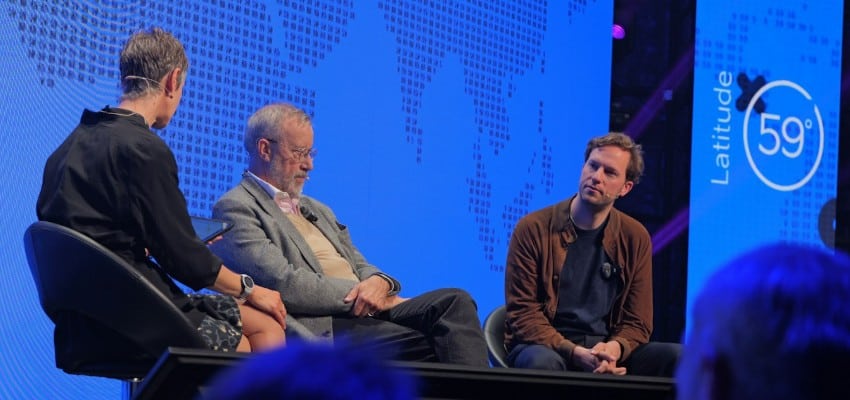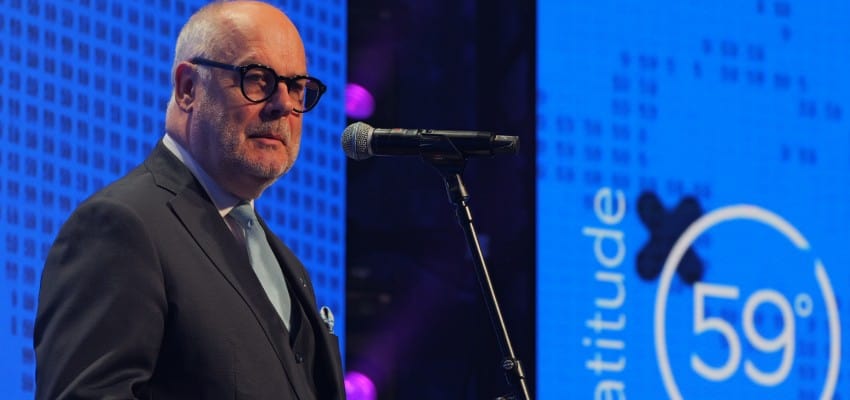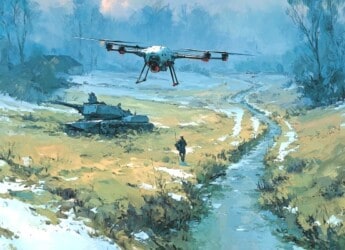Editor’s Note: The 2025 edition of Latitude59 opened not with routine optimism but with a compelling call for unity, urgency, and innovation. Kicking off with the passionate voice of Liisi Org, who underscored the need for boldness tempered by perspective and integrity, the conference set a purposeful tone. Estonia’s President Alar Karis followed with opening remarks that challenged Europe to act decisively in the face of rising technological and geopolitical pressures.
The opening panel, led by moderator Kristen Davis and featuring former Estonian President Toomas Hendrik Ilves and European Parliamentarian Damian Boeselager, laid out a pragmatic yet urgent vision for Europe’s digital and economic future.
ComplexDiscovery’s presence at Latitude59 reflects our commitment to engaging in the high-stakes conversations shaping cybersecurity, information governance, and eDiscovery. As regulatory cohesion, capital flows, and digital sovereignty become operational imperatives, the insights from Tallinn provide not just context but direction for professionals across our community.
Content Assessment: At Latitude59, Estonia Challenges Europe: Innovate Boldly or Be Left Behind
Information - 94%
Insight - 94%
Relevance - 93%
Objectivity - 93%
Authority - 94%
94%
Excellent
A short percentage-based assessment of the qualitative benefit expressed as a percentage of positive reception of the recent article from ComplexDiscovery OÜ titled, "At Latitude59, Estonia Challenges Europe: Innovate Boldly or Be Left Behind."
Industry News – Technology Beat
At Latitude59, Estonia Challenges Europe: Innovate Boldly or Be Left Behind
ComplexDiscovery Staff
Beneath the industrial beams of Kultuurikatel, the historic power plant turned cultural venue in Tallinn, Latitude59 opened its 2025 edition with a message more pressing than celebratory: Europe must act swiftly and strategically to secure its place in the future of global technology and security.
Latitude59, often dubbed the “Davos for startups” of the Baltic region, is more than Estonia’s leading tech conference. It’s a barometer for the continent’s innovation climate. This year, it kicked off with an urgent call for action. Liisi Org, a leading voice in Estonia’s startup ecosystem and co-host of the conference, underscored the importance of marrying bold innovation with diverse perspectives and steadfast integrity.
“Be bold with perspective and integrity,” Org told a global audience representing more than 70 countries. She emphasized the expanding international footprint of Latitude59—touching Kenya, Singapore, and soon, South Africa—as evidence of the need for interconnected ecosystems. Ong urged attendees to defend the digital and democratic values that define modern Estonia. “Technology shapes how we live, connect, and protect what we value,” she said, framing defense tech not merely as a theme but as a defining issue of our time.
Estonian President Alar Karis, in his keynote, delivered a sweeping overview of the global challenges confronting Europe: economic fragmentation, data silos, and geopolitical instability. “We are witnessing the slowing of openness,” he warned, citing rising protectionism and the retreat of liberal norms. For Karis, Europe’s future lies in turning these constraints into catalysts, particularly through technology. “This conference is a chance to unleash our imaginations,” he said. “Let us dream of technologies and solutions that might sound bold or even impossible today… with courage and collaboration; they can be made real tomorrow”.
That tone of urgency persisted into the day’s first major panel: “Integrity & Perspective: Strategies and Visions for Europe.” Moderated by digital strategist Kristen Davis, the session featured former Estonian President Toomas Hendrik Ilves and European Parliamentarian Damian Boeselager. Both men offered a sobering yet pragmatic analysis of the European Union’s digital and economic posture.
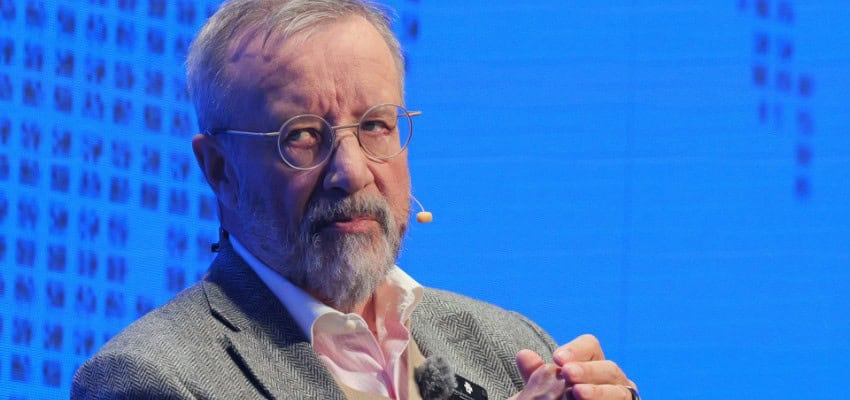
Ilves, celebrated for Estonia’s digital transformation, cautioned against Europe’s growing technological dependence on foreign powers. “Security in the 21st century is a technology question,” he stated. “If we fall behind, we rely on others—and we risk our sovereignty.” He pointed to recent incidents where U.S. tech firms restricted services critical to European allies as a preview of vulnerabilities. The lesson: Europe must accelerate domestic innovation and reduce strategic dependencies.
Boeselager, co-founder of the Volt movement, framed Europe’s innovation shortfall as a systemic failure rooted in disjointed capital markets and outdated immigration policies. He advocated for a unified EU capital market, the liberalization of pension fund investments into startups, and reforms to make Europe a more attractive destination for international talent. “The opportunity cost of missing out on innovation is enormous,” he said. “We need to change our mindset, our mechanisms, and how we structure access to investment.”
A key theme emerging from the panel was that Europe’s innovation challenge is not due to a lack of ideas but a failure of execution. Ilves emphasized that the core technologies needed to build secure, interoperable systems already exist. What’s lacking is the political will to implement them. Estonia’s digital prescription system, which now operates cross-border with 12 other EU countries, is a case in point. “The tech isn’t the problem—it’s the regulation and mindset that hold us back,” Ilves noted.
AI, too, surfaced as both a challenge and an opportunity. While Europe cannot currently match the AI investments of the U.S. or China, the panelists argued that the EU could lead in the ethical application and secure deployment of AI systems. “We can’t build everything, but we can build differently,” Ilves said, invoking Estonia’s unique chip-based ID infrastructure as a model for secure digital governance.
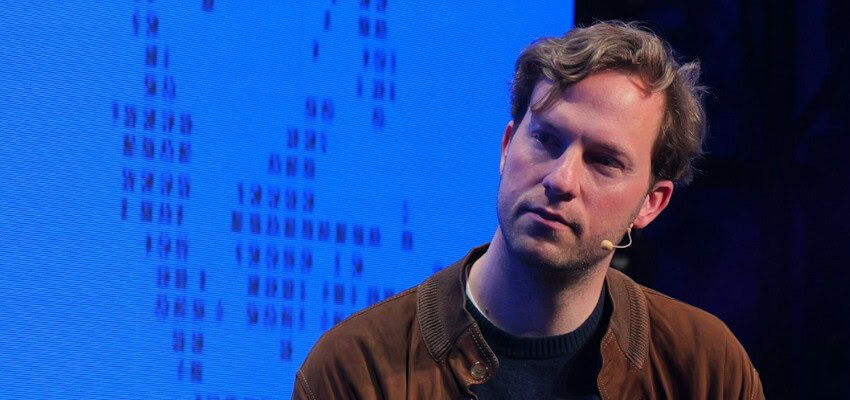
Perhaps the most poignant moment came as Ilves reflected on the broader geopolitical implications of Europe’s tech lag. “We are living in a far more dangerous world than we have since the Cold War,” he warned, citing instability in Russia, strategic uncertainty in the U.S., and rising tensions with China. Boeselager echoed the sentiment, arguing that Europe’s slow pace of change risks not just economic irrelevance but democratic backsliding. “We cannot snooze through another wake-up call,” he said.
In Tallinn, amid a gathering of founders, technologists, and policymakers, the message was clear: Europe stands at a crossroads. The continent must unify its digital infrastructure, reform capital flows, attract global talent, and rethink how it governs technology, not someday, but now.
As the opening day drew to a close, Org’s challenge lingered in the air: “Let’s enter action with boldness.” The question posed to every attendee, whether from the Baltics or beyond, was direct and undeniable—how boldly and how quickly will Europe move?
News Sources
- ComplexDiscovery Staff. (2025, May 22). Notes from attended during “Opening Remarks and First Panel” at Latitude59, Tallinn, Estonia. Unpublished observations.
- Latitude59: May 21-23, 2025 (Latitude59)
Assisted by GAI and LLM Technologies
Additional Reading
- “Bee vs. Elephant”: Estonia’s Agile Strategy Headlines Latitude59
- Strategic Innovation and Ukraine’s Tech Frontline at Latitude59 and Dublin Tech Summit
Source: ComplexDiscovery OÜ
